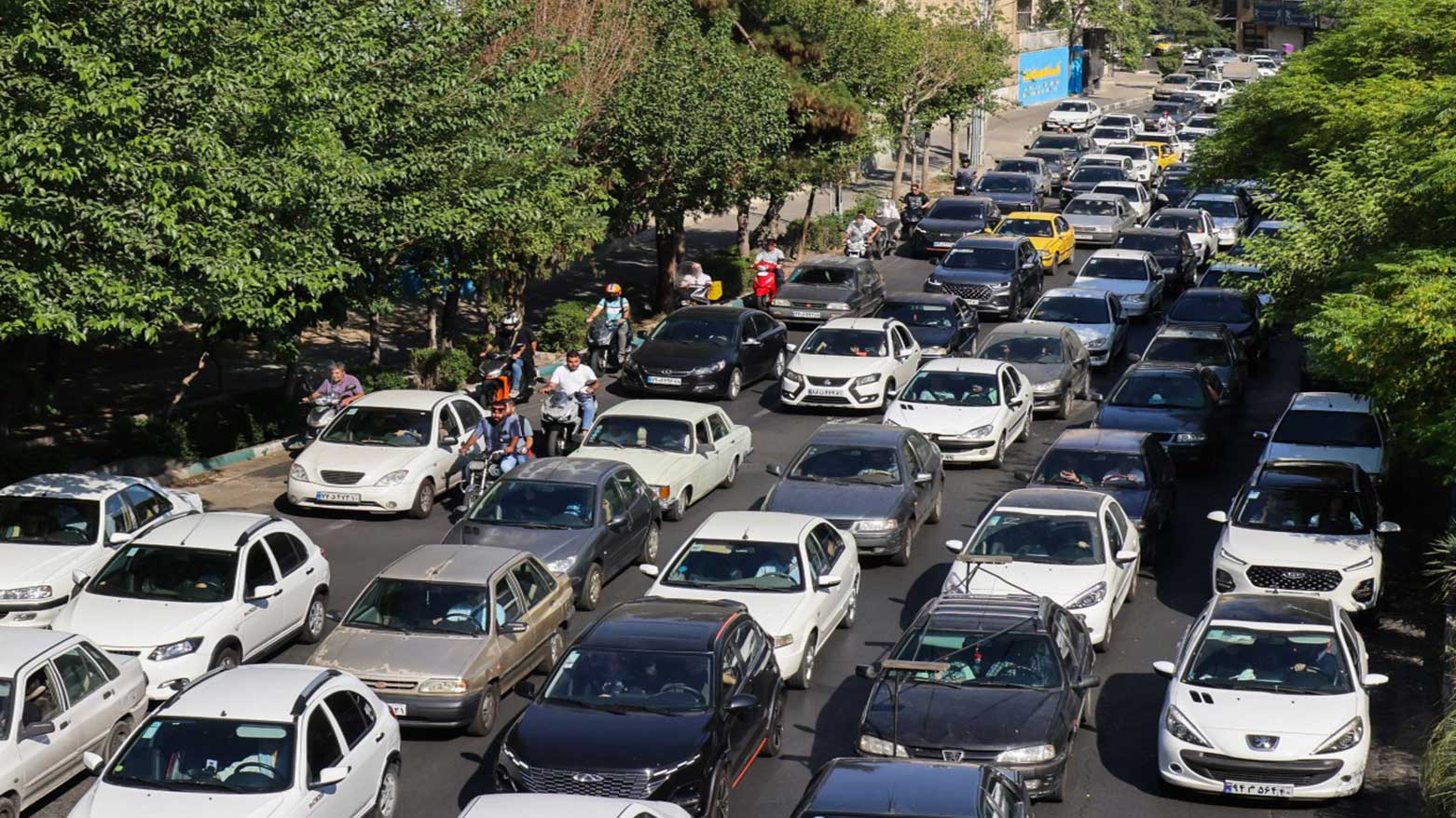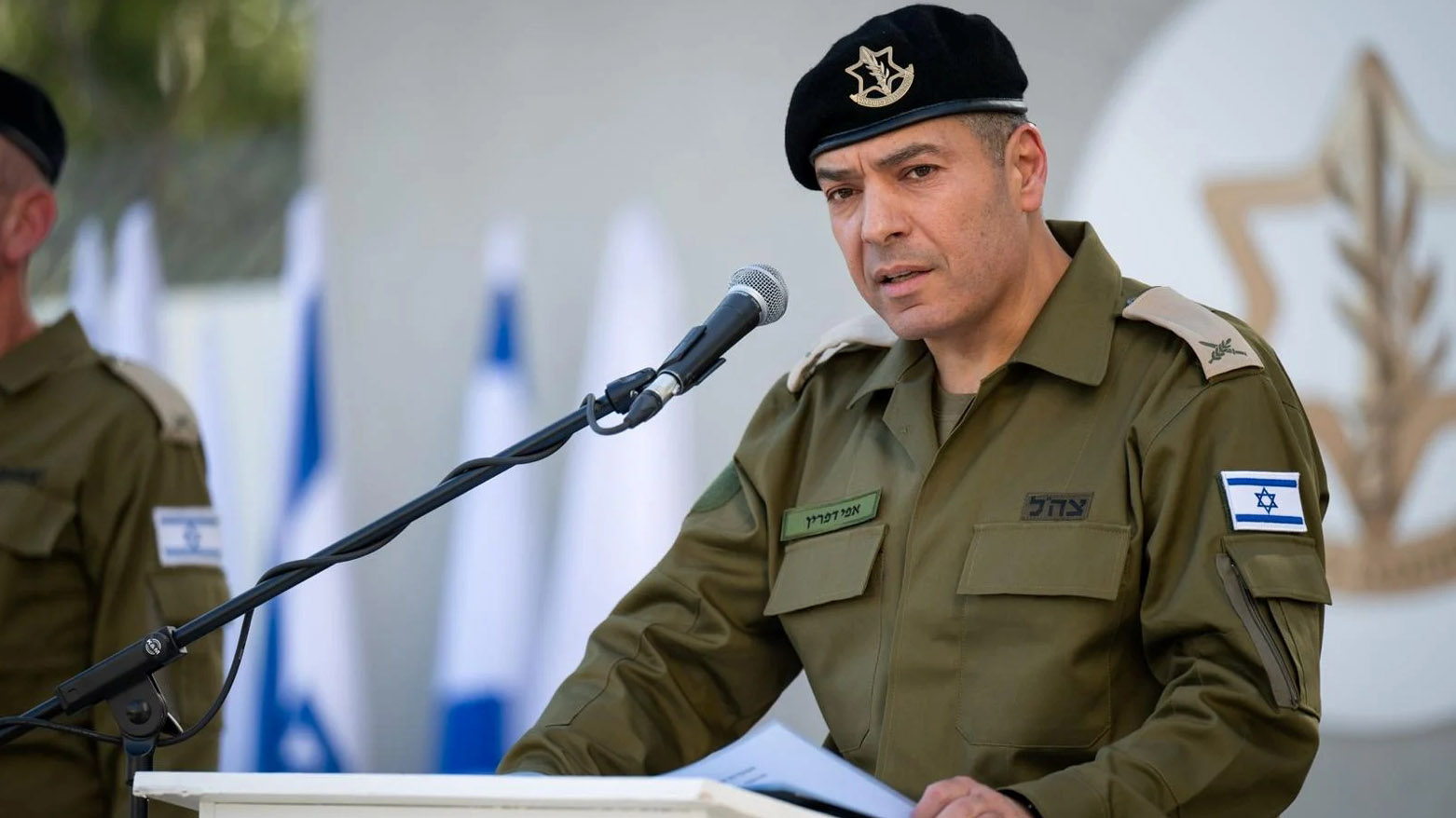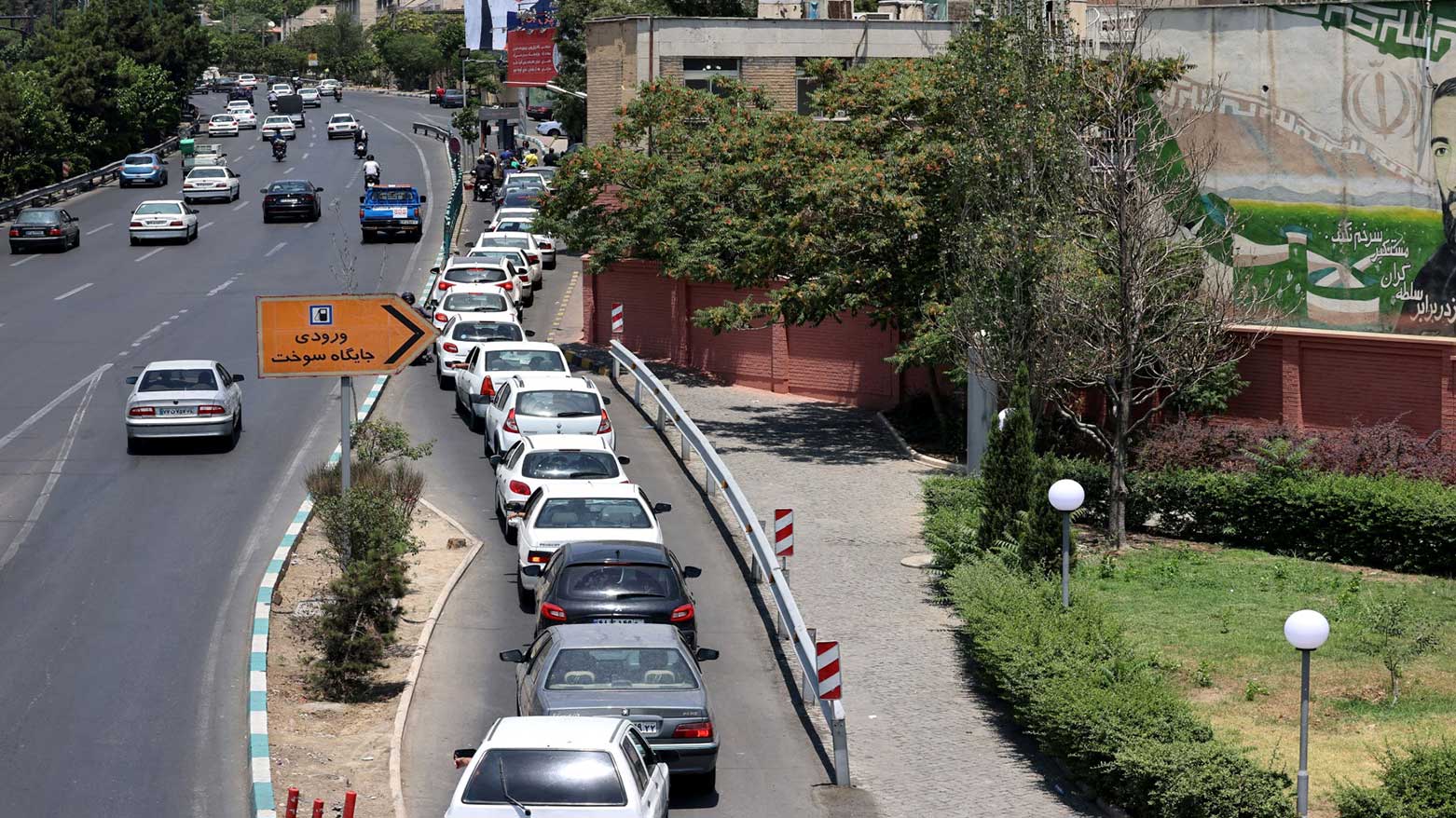Tehran Shuts Down, Civilians Flee as Israel Claims Air Superiority Over Iranian Skies
The Iranian capital’s ancient Grand Bazaar—normally a bustling hub of commerce—remained closed. On major roads leading westward out of Tehran, cars were bumper-to-bumper, and long queues formed at gas stations as residents sought to leave the city amid fears of further Israeli airstrikes.

ERBIL (Kurdistan24) — Downtown Tehran showed signs of growing panic early Tuesday as shops shuttered and traffic clogged the city’s western exits, with many residents fleeing toward the Caspian Sea amid escalating military tensions, according to the Associated Press (AP).
The Iranian capital’s ancient Grand Bazaar—normally a bustling hub of commerce—remained closed, an extraordinary move that has only occurred in the past during large-scale antigovernmental protests or the peak of the COVID-19 pandemic. On major roads leading westward out of Tehran, cars were bumper-to-bumper, and long queues formed at gas stations as residents sought to leave the city amid fears of further Israeli airstrikes.
Israel’s strikes on Iranian military infrastructure began Friday in a sweeping aerial campaign that has so far targeted nuclear facilities, missile bases, and command centers. Tehran has responded with successive waves of missile and drone attacks aimed at Israeli cities, as both sides accuse the other of fueling a path toward regional war.
With air raid sirens and missile alerts becoming routine in both countries, international concerns continue to mount over the potential for a broader conflict that could draw in neighboring states and global powers.
According to AP, Israeli military spokesperson Brig. Gen. Effie Defrin declared Monday that Israeli forces had “achieved full aerial superiority over Tehran’s skies,” marking a significant escalation in Israel’s military campaign against Iran. Defrin said the Israeli Air Force had conducted hundreds of sorties over Iranian airspace in recent days, targeting critical military infrastructure with precision-guided munitions.

The Israeli military reported that it had destroyed over 120 surface-to-surface missile launchers in central Iran—approximately one-third of the country’s total stockpile. Among them were several launchers allegedly eliminated moments before they were set to fire ballistic missiles at Israeli territory. In addition, the military said two Iranian F-14 fighter jets were destroyed as they attempted to intercept Israeli aircraft.
Israeli officials further stated that fighter jets had struck 10 command centers in Tehran belonging to the Quds Force, the elite overseas operations unit of Iran’s Islamic Revolutionary Guard Corps (IRGC). These command hubs, according to the Israeli military, were coordinating missile attacks on Israel and supporting allied militant groups across the region.
In an unprecedented move, Israel issued an evacuation warning for a section of central Tehran that includes the national police headquarters, state television facilities, and three major hospitals—one of which is operated by the Revolutionary Guard. While such warnings are more commonly issued in conflict zones like Gaza or southern Lebanon, this marked the first time Israel had publicly advised civilians to evacuate part of the Iranian capital.
As of Tuesday, there were no clear signs of de-escalation, and residents in Tehran appeared increasingly uncertain about what might come next.

